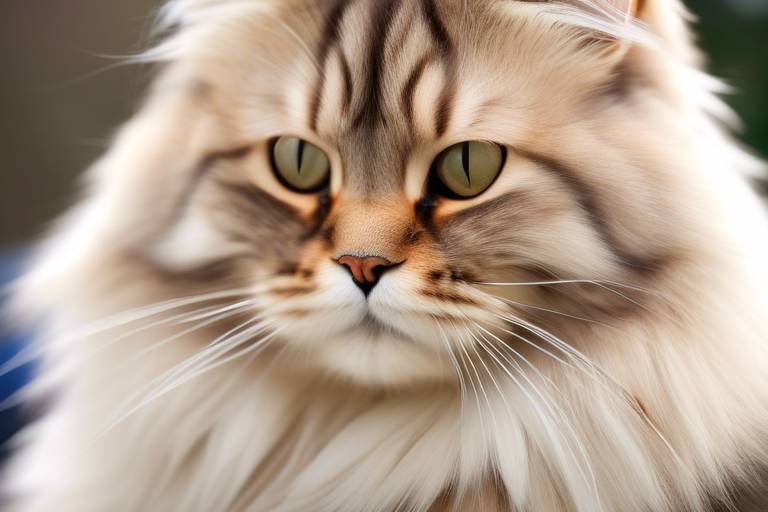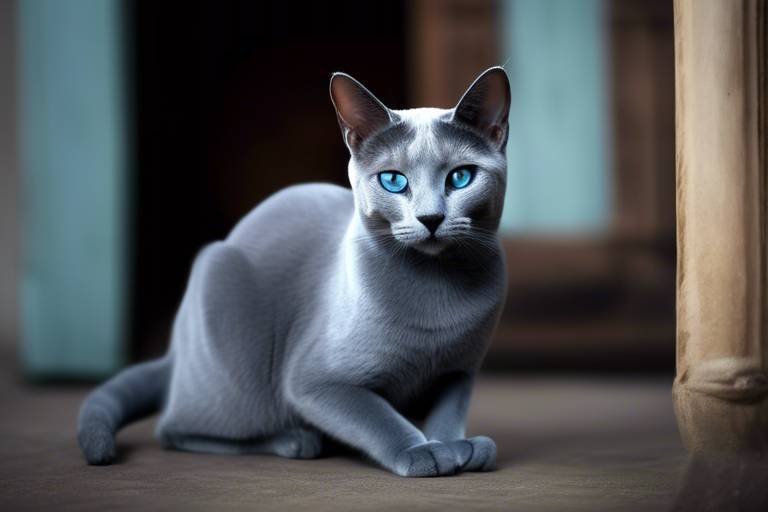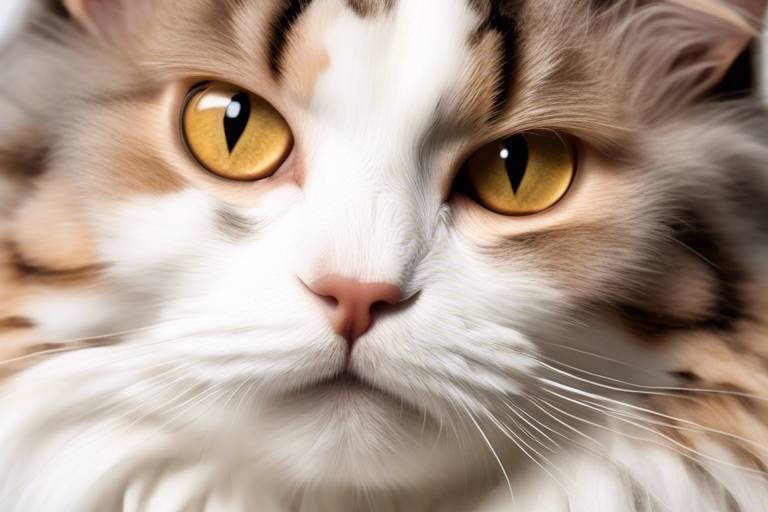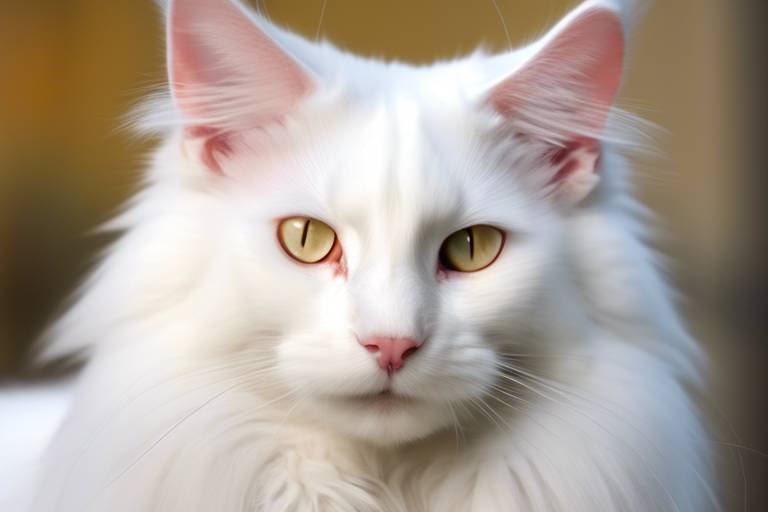Understanding the Characteristics of the Chartreux
The Chartreux is a captivating breed that has charmed cat lovers for centuries. With their unique blend of physical beauty and delightful temperament, these cats are not just pets; they are family members. If you're considering adding a Chartreux to your household, it's essential to understand what makes them tick. From their striking appearance to their affectionate nature, each characteristic contributes to their allure. This article will delve deep into the traits that define the Chartreux, exploring their physical features, temperament, health considerations, and care requirements. By the end, you'll have a comprehensive understanding of this remarkable breed, making you well-equipped to welcome a Chartreux into your home.
The Chartreux is renowned for its distinctive physical features that set it apart from other breeds. They boast a robust, muscular body that exudes strength and agility. Their coat is short, dense, and water-repellent, which is a trait that has served them well in their historical role as skilled hunters. The color of their fur ranges from a beautiful slate blue to a more silvery hue, giving them a unique and elegant appearance. One of the most striking aspects of the Chartreux is their eyes, which can be a mesmerizing shade of copper or gold. These expressive eyes not only enhance their beauty but also reflect their gentle and intelligent nature. In essence, the physical characteristics of the Chartreux create an image of a cat that is both regal and approachable, making them a beloved choice for cat enthusiasts.
When it comes to temperament, the Chartreux truly shines. Known for their friendly and gentle nature, these cats are affectionate companions that often form strong bonds with their families. They possess a unique blend of playfulness and calmness, making them suitable for both families and individuals. Imagine a cat that greets you at the door after a long day, ready to curl up in your lap and share a moment of warmth. That's the Chartreux for you! Their sociable behavior means they enjoy the company of humans and other pets, making them ideal for multi-pet households. Chartreux cats are not just pets; they are companions who thrive on interaction and love.
Chartreux cats are inherently social creatures. They thrive on companionship and enjoy being part of family activities. Whether it's lounging on the couch while you watch TV or joining in on playtime with the kids, these cats are always eager to participate. Their playful yet calm demeanor makes them suitable for families, as they can engage in spirited play without being overly rambunctious. It's like having a furry friend who knows just when to be silly and when to settle down for a cozy cuddle. This adaptability enhances their desirability as pets, as they can seamlessly integrate into various lifestyles.
When it comes to children, Chartreux cats are typically patient and playful. Their tolerant nature allows them to engage with kids in a loving manner, making them an excellent choice for families. Imagine a child giggling as a Chartreux playfully swats at a dangling string or joins in a game of chase around the living room. These interactions not only provide entertainment but also help teach children about empathy and responsibility in caring for a pet. The Chartreux is a breed that can enrich a child's life, offering companionship and lessons in nurturing.
Chartreux cats are known for their ability to coexist peacefully with other animals, including dogs. Their adaptable temperament allows them to integrate smoothly into multi-pet households. This compatibility is a significant advantage for pet owners who already have other furry friends at home. Picture a Chartreux lounging comfortably next to a dog, both enjoying the warmth of the sun streaming through the window. This harmonious living environment is a testament to the Chartreux's sociable nature, making them a wonderful addition to any household.
While Chartreux cats are affectionate, they also value their independence. They are capable of entertaining themselves, which makes them suitable for owners with busy lifestyles. Imagine coming home after a long day to find your Chartreux happily playing with a toy or observing the world from a sunny perch. This independence allows them to thrive even when their owners are occupied, ensuring that they remain content and fulfilled. It's the perfect balance between companionship and self-sufficiency, giving owners the best of both worlds.
Understanding the health needs of the Chartreux is crucial for prospective owners. While these cats are generally healthy, they can be prone to certain genetic conditions. Awareness of these issues can help owners take proactive measures to maintain their pet's well-being. Regular veterinary check-ups, vaccinations, and a balanced diet are vital for the Chartreux's health. By keeping a close eye on their health and ensuring they receive appropriate care, owners can significantly enhance their pet's quality of life.
Chartreux cats may be prone to specific genetic conditions, including:
- Hypertrophic Cardiomyopathy (HCM)
- Obesity
- Dental issues
Being aware of these potential health concerns can empower owners to take proactive steps in maintaining their pet's health.
Routine veterinary visits, vaccinations, and a balanced diet are essential for the Chartreux's health. Preventive care is not just a recommendation; it's a necessity for prolonging their lifespan and enhancing their quality of life. Regular check-ups can help identify any health issues early on, ensuring that your Chartreux remains happy and healthy for years to come.
Proper care is essential for maintaining the health and happiness of a Chartreux. This breed has specific grooming needs that, when met, can lead to a healthier coat and a stronger bond between pet and owner. Although the Chartreux has a short coat, regular grooming helps reduce shedding and matting. Understanding their grooming requirements is crucial for ensuring they remain comfortable and looking their best.
Regular grooming is essential for Chartreux cats, even though they have a short coat. Brushing them a couple of times a week can help reduce shedding and prevent matting. Plus, grooming sessions are a fantastic way to bond with your cat, creating moments of affection and trust. Think of it as a mini spa day for your furry friend, where they get pampered and loved.
A balanced diet is crucial for the Chartreux's health. This breed thrives on high-quality cat food that meets their nutritional needs. It's essential to establish a feeding schedule and to choose the right food to support their overall well-being. Paying attention to their diet not only helps maintain a healthy weight but also ensures they have the energy to play and explore their surroundings. Think of their food as fuel for their adventures!
Here are some common questions potential owners may have about the Chartreux:
- Are Chartreux cats hypoallergenic? No, they are not hypoallergenic, but they tend to produce less dander than some other breeds.
- Do they require a lot of exercise? While they enjoy playtime, Chartreux cats can be relatively low-maintenance in terms of exercise.
- How do they handle being left alone? Chartreux cats are independent and can manage alone for longer periods, making them suitable for busy owners.

Physical Appearance
The Chartreux is a breed that captivates with its unique and striking physical characteristics. These cats boast a robust and muscular body, which is both powerful and agile, allowing them to move gracefully despite their solid build. Their short, dense coat is another hallmark of the breed, offering a plush feel that invites petting. The coat typically comes in a beautiful shade of blue-gray, which adds to their overall charm and elegance. What truly sets the Chartreux apart, however, are their mesmerizing eyes. Ranging from copper to gold, these striking eyes provide a warm, expressive gaze that can melt anyone's heart.
In terms of size, Chartreux cats are medium to large, with males generally weighing between 12 to 16 pounds and females typically ranging from 8 to 12 pounds. Their broad heads and rounded contours give them a distinctive look, complemented by their short, straight noses. The ears are medium-sized and slightly rounded at the tips, which adds to their overall soft appearance. One of the most appealing aspects of the Chartreux is their expressive facial features, which often display a calm and friendly demeanor.
When it comes to grooming, the Chartreux's short coat requires minimal maintenance, but regular brushing is recommended to keep their fur in top condition. This helps to reduce shedding and prevents matting, ensuring that their coat remains as beautiful as ever. The texture of their fur is often compared to that of a rabbit, soft and inviting, making it hard to resist running your fingers through it. It's important to note that despite their low grooming needs, they still benefit from the occasional pampering session, which not only keeps them looking great but also strengthens the bond between pet and owner.
Overall, the physical appearance of the Chartreux is a blend of strength and grace, making them a standout choice for anyone looking for a feline companion. Their unique coat color, coupled with their vibrant eyes and robust body, creates an image of a cat that is not only beautiful but also full of personality. Whether lounging in a sunbeam or playfully chasing after a toy, the Chartreux is sure to capture the hearts of those who are lucky enough to share their lives with them.
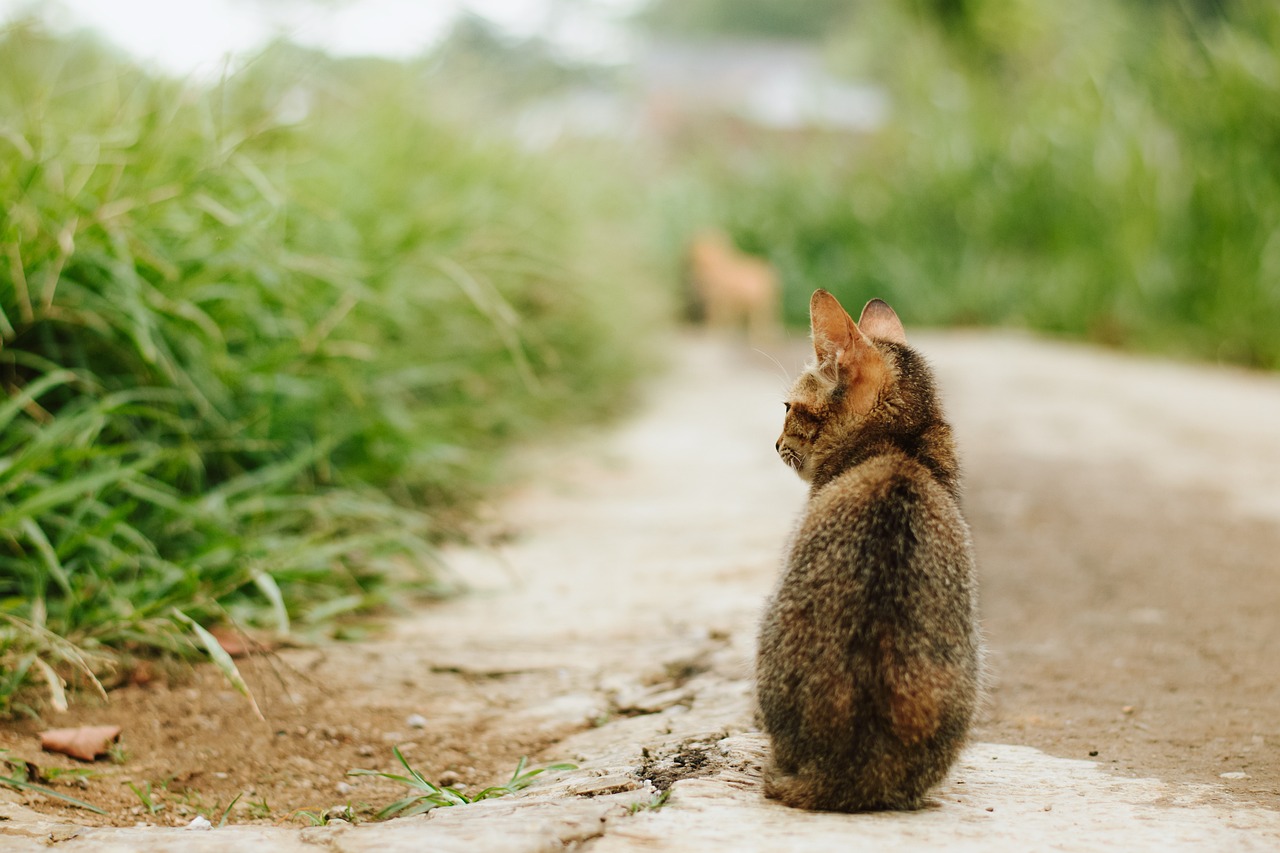
Temperament
The temperament of the Chartreux is one of its most captivating traits, making it a cherished companion among cat lovers. Known for their friendly and gentle nature, Chartreux cats are not just pets; they become integral members of the family. Imagine coming home after a long day, and there they are—your little ball of fur, ready to greet you with affection. This breed has a unique ability to form strong bonds with their owners, often following them from room to room, just to be close. It's like having a loyal shadow that brings warmth and joy into your life.
What sets them apart is their independent streak. Unlike some breeds that cling to their owners, Chartreux cats appreciate their alone time. This means they can entertain themselves while you’re busy, making them an ideal choice for those with a hectic lifestyle. They don’t demand constant attention but will happily engage when you’re ready to play or cuddle. It's a perfect balance that many pet owners find appealing.
Chartreux cats are particularly sociable. They thrive on human interaction and enjoy the company of other pets. Their playful yet calm demeanor makes them suitable for families and individuals alike. Whether it's chasing after a feather toy or lounging in a sunbeam, these cats seem to have a knack for bringing a sense of tranquility and joy to any environment. Their playful antics can lighten the mood, making them delightful companions.
When it comes to families, Chartreux cats shine. They typically get along well with children, displaying a patience and playfulness that is commendable. Imagine a child giggling as they play with their furry friend, who remains calm and tolerant even during the most boisterous play sessions. This breed is an excellent choice for families looking for a loving pet that engages well with kids, adding a layer of affection and fun to the household.
Chartreux cats often coexist peacefully with other animals, including dogs. Their adaptable temperament allows them to integrate smoothly into multi-pet households, fostering a harmonious living environment. It’s not uncommon to see a Chartreux snuggled up next to a dog or playing with another cat. Their sociable nature makes them a wonderful addition to any pet-loving family.
While they are affectionate, Chartreux cats value their independence. They are capable of entertaining themselves, making them suitable for owners who may not always be available for constant companionship. Think of them as the cool friend who is perfectly fine hanging out alone, yet is always there when you need a buddy. This characteristic makes them low-maintenance pets that still provide love and companionship when you need it most.
- Are Chartreux cats hypoallergenic? - No, Chartreux cats are not hypoallergenic, but they do produce less dander compared to some other breeds.
- Do Chartreux cats require a lot of grooming? - Their short coat requires minimal grooming, but regular brushing helps reduce shedding.
- How active are Chartreux cats? - They have a moderate activity level, enjoying playtime but also appreciating their downtime.
- Are they good for first-time cat owners? - Yes, their friendly nature and adaptability make them great for first-time cat owners.
Social Behavior
The Chartreux cat is not just a pretty face; their is one of the most captivating aspects of their personality. These felines are natural charmers, often displaying a delightful blend of playfulness and calmness that makes them the perfect companions for both families and individuals. Imagine coming home after a long day, and there they are, waiting by the door with their striking copper or gold eyes, ready to greet you with a gentle nudge. Their affectionate nature means they thrive on human interaction and love to be part of the family dynamic.
Moreover, Chartreux cats are known for their sociable demeanor. They enjoy the company of not only humans but also other pets. This adaptability is one of their standout traits, making them suitable for various living situations. Whether you have a bustling household filled with children and other pets or a quieter home, the Chartreux can seamlessly fit in. Their playful yet calm disposition allows them to engage in lively play sessions one moment and then curl up on your lap the next, providing the best of both worlds.
When it comes to their interactions with children, Chartreux cats are typically very patient and playful. They exhibit a level of tolerance that is admirable, often becoming the best friends of the little ones in the household. Kids can be boisterous, but the Chartreux takes it all in stride, making them an excellent choice for families. Their playful antics can bring joy and laughter, creating memorable moments for everyone involved. It's not uncommon to see a Chartreux playing hide-and-seek with a child or lounging together during storytime.
In addition to their compatibility with children, Chartreux cats also coexist well with other pets, including dogs. Their friendly nature and ability to adapt to different environments mean that they can integrate smoothly into multi-pet households. This adaptability fosters a harmonious living environment where all pets can thrive together. To illustrate this point, let’s take a look at the social behaviors that make Chartreux cats so special:
| Social Behavior Trait | Description |
|---|---|
| Affectionate | Chartreux cats love to cuddle and spend time with their humans. |
| Playful | They enjoy interactive play, making them fun companions. |
| Patient | Chartreux are tolerant of children and their antics. |
| Adaptable | They can adjust to various living conditions and cohabitate with other pets. |
All these traits combined make the Chartreux a highly desirable pet. Their social nature means they are not just cats; they are family members who bring joy, laughter, and companionship into our lives. If you’re considering adding a Chartreux to your family, rest assured that you’re welcoming a loving and sociable friend into your home.
- Are Chartreux cats good with children?
Yes, they are known for their patient and playful nature, making them excellent companions for kids. - Do Chartreux cats get along with other pets?
Absolutely! Their adaptable temperament allows them to coexist peacefully with other animals, including dogs. - How much interaction do Chartreux cats need?
They thrive on human interaction and enjoy being part of family activities, but they also appreciate their independence. - What is the best way to socialize a Chartreux cat?
Regular interactions with family members and other pets from a young age can help them develop their social skills.
Interaction with Children
Chartreux cats are not just pets; they are family members, and their interaction with children exemplifies this beautifully. Known for their gentle demeanor and playful spirit, these felines can be the perfect companions for kids of all ages. Imagine a fluffy, gray cat with striking copper eyes, patiently watching as your child plays. The Chartreux's tolerant nature allows them to engage in fun, interactive play without becoming overwhelmed. They are often seen lounging around while kids build forts or engage in imaginative games, and they seem to thrive in such lively environments.
What makes the Chartreux particularly special is their ability to form strong bonds with children. They enjoy being involved in family activities, whether it's chasing after a ball or curling up next to a child during storytime. This breed is often described as affectionate and loyal, which means they will not shy away from snuggling up when the day winds down. Their calm and patient temperament allows them to adapt to the sometimes chaotic energy that children bring into a home.
Moreover, Chartreux cats possess an innate sense of playfulness that resonates well with children. They love to engage in games that stimulate their minds and bodies, making them excellent partners for interactive toys like feather wands or laser pointers. This playful side not only keeps kids entertained but also encourages them to be active, creating a wonderful bond through shared experiences. In fact, many families report that their Chartreux becomes a child's first friend, helping them learn about responsibility and empathy.
However, it is essential to teach children how to interact with their furry friends respectfully. Encouraging gentle petting and discouraging rough play can foster a healthy relationship between Chartreux cats and kids. Here are some tips for ensuring a harmonious interaction:
- Supervise Playtime: Always keep an eye on interactions to ensure that both the child and cat are comfortable.
- Teach Gentle Touch: Show children how to pet the cat softly and avoid pulling on its tail or fur.
- Respect Boundaries: Educate kids about recognizing when the cat wants to be left alone.
In summary, the Chartreux cat can be an incredible addition to a family with children. Their affectionate nature, playful attitude, and ability to bond make them a delightful choice for families seeking a loving pet. With proper guidance on interactions, both children and Chartreux cats can enjoy a fulfilling relationship that brings joy and companionship to everyone involved.
Q: Are Chartreux cats good with young children?
A: Yes, Chartreux cats are known for their gentle and patient nature, making them great companions for young children.
Q: How should I introduce a Chartreux cat to my child?
A: Start with supervised interactions, allowing your child to approach the cat slowly and gently. Teach your child how to pet the cat properly.
Q: Do Chartreux cats enjoy playing with children?
A: Absolutely! They are playful and enjoy interactive games, making them ideal companions for active kids.
Q: Can a Chartreux cat handle rough play from children?
A: While they are tolerant, it's essential to teach children to play gently to avoid stressing the cat.
Compatibility with Other Pets
The Chartreux cat is often celebrated for its adaptable nature, making it a fantastic addition to multi-pet households. These charming felines are not only friendly but also exhibit a remarkable ability to coexist with various animals, including dogs. Imagine a household where your cat and dog play together, sharing their space in perfect harmony—this is a reality for many Chartreux owners. Their sociable demeanor allows them to form bonds with other pets, which can be a delight for families looking to create a lively and loving environment.
One of the most appealing aspects of the Chartreux is their laid-back attitude. They tend to approach new companions with curiosity rather than aggression, which helps ease the introduction process. When bringing a new pet into a home with a Chartreux, it's essential to monitor their interactions initially. Allowing both pets to explore each other's scents and gradually introducing them can foster a sense of security and comfort. In many cases, the Chartreux will quickly adapt and even engage in playful antics with their new friends.
However, it’s important to consider the personalities of all pets involved. While Chartreux cats are generally tolerant, a more dominant or aggressive pet may not mesh well with their gentle nature. Here are a few tips for ensuring a smooth integration:
- Gradual Introductions: Introduce new pets slowly to avoid overwhelming your Chartreux.
- Supervised Interactions: Keep an eye on their interactions until you’re confident they can coexist peacefully.
- Space and Resources: Ensure each pet has its own space, food, and water bowls to prevent territorial disputes.
Ultimately, the Chartreux’s friendly disposition and ability to adapt make it a suitable companion for various pets. Whether you have dogs, other cats, or even smaller animals, the Chartreux can often find a way to fit into the family dynamic. Their gentle nature not only enriches the lives of their owners but also fosters a peaceful coexistence among all household members.
- Do Chartreux cats get along with dogs? Yes, Chartreux cats are known for their friendly nature and can coexist well with dogs, especially if introduced properly.
- How should I introduce a new pet to my Chartreux? Gradual introductions are key. Start by allowing them to sniff each other's belongings before meeting face-to-face.
- Are Chartreux cats territorial? While they can be territorial, their adaptable nature often helps them adjust to new pets in the household.
- Can I have multiple Chartreux cats together? Yes, Chartreux cats typically enjoy the company of their own kind and can thrive in multi-cat households.
Independence
The Chartreux cat is a fascinating blend of affection and independence, making them a truly unique companion. Imagine having a friend who loves to cuddle up next to you after a long day, yet is perfectly content to entertain themselves while you're busy. This balance of traits is what sets the Chartreux apart from many other breeds. They possess a calm demeanor that allows them to thrive in various living situations, whether it’s a bustling family home or a quiet apartment.
One of the remarkable aspects of the Chartreux's independence is their ability to keep themselves entertained. They are not overly demanding of attention, which makes them ideal for individuals or families with busy lifestyles. You might find your Chartreux happily playing with a simple ball of yarn or perched on a windowsill, observing the world outside. This self-sufficiency is like having a pet that respects your space while still being a loving presence in your life.
However, it’s important to note that while they appreciate their independence, Chartreux cats still thrive on human interaction. They enjoy engaging with their owners, often following them around the house or curling up in their laps during quiet moments. This blend of independence and affection creates a dynamic relationship that many pet owners cherish. It's almost like having the best of both worlds—an independent spirit that also craves companionship.
For those considering bringing a Chartreux into their home, it’s essential to understand this balance. Providing them with stimulating toys, scratching posts, and interactive playtime can help satisfy their playful nature while allowing them to maintain their independence. Additionally, creating a safe environment where they can explore and feel secure is crucial. After all, a happy Chartreux is one that feels both loved and free.
In summary, the Chartreux's independence is a key characteristic that enhances their appeal as pets. They are low-maintenance companions that can adapt to various lifestyles while still offering warmth and affection. Embracing their independent nature while providing love and engagement will ensure a fulfilling relationship with this charming breed.
- Are Chartreux cats good for first-time owners? Yes, their independent nature and friendly temperament make them suitable for first-time cat owners.
- How much exercise do Chartreux cats need? While they are independent, regular playtime is essential to keep them physically and mentally stimulated.
- Do Chartreux cats shed a lot? They have a short coat, which means they shed less compared to long-haired breeds, but regular grooming is still recommended.
- Can Chartreux cats be left alone for long periods? Yes, they can entertain themselves for a while, but they still need social interaction to remain happy.

Health Considerations
When it comes to caring for a Chartreux cat, understanding their health needs is absolutely crucial. These charming felines are generally robust and resilient, but like any breed, they can be prone to certain health issues. By being aware of these potential problems, you can take proactive steps to ensure your furry friend lives a long, happy, and healthy life. Regular veterinary check-ups are essential, as they allow for early detection of any health concerns and help establish a preventive care routine.
Chartreux cats are particularly susceptible to a few genetic conditions, including hypertrophic cardiomyopathy (HCM), which affects the heart muscle and can lead to serious complications if not managed properly. Additionally, they may experience dental issues, which can be minimized through regular dental care and proper nutrition. Being mindful of these conditions can help you provide the best care possible for your Chartreux.
To further emphasize the importance of health management, consider the following common health issues that may affect Chartreux cats:
- Hypertrophic Cardiomyopathy (HCM): A heart condition that can lead to heart failure if not monitored.
- Obesity: Chartreux cats love food, so maintaining a healthy weight through diet and exercise is essential.
- Dental Disease: Regular dental check-ups and cleanings can help prevent serious oral health issues.
Preventive care is key to ensuring your Chartreux remains healthy throughout their life. Routine veterinary visits should include vaccinations, parasite control, and wellness exams. These check-ups not only help catch any potential issues early but also provide an opportunity to discuss any concerns you may have regarding your pet's health. Additionally, a balanced diet tailored to their specific needs plays a significant role in their overall well-being. Chartreux cats thrive on high-quality protein sources, and their diet should be rich in nutrients to support their active lifestyle.
In terms of preventive care, here are some important steps you can take:
| Preventive Care Steps | Frequency |
|---|---|
| Veterinary Check-ups | At least once a year |
| Vaccinations | As recommended by your vet |
| Dental Cleanings | Every 6-12 months |
| Weight Monitoring | Monthly |
By keeping a close eye on your Chartreux's health and providing proper care, you can help them lead a vibrant and fulfilling life. Remember, a little attention to their health goes a long way in ensuring your furry companion remains by your side for many years to come.
Q1: How often should I take my Chartreux to the vet?
A1: It's recommended to take your Chartreux for a veterinary check-up at least once a year. However, if your cat has any health issues or is aging, more frequent visits may be necessary.
Q2: What are the signs of Hypertrophic Cardiomyopathy in cats?
A2: Symptoms may include lethargy, difficulty breathing, and decreased appetite. If you notice any of these signs, consult your veterinarian immediately.
Q3: Can I feed my Chartreux a homemade diet?
A3: While homemade diets can be beneficial, it's essential to ensure they are well-balanced and meet your cat's nutritional needs. Consulting with a veterinarian or a pet nutritionist is advisable.
Q4: How can I help prevent dental disease in my Chartreux?
A4: Regular dental check-ups, brushing their teeth, and providing dental treats can help maintain your Chartreux's oral health.
Common Health Issues
The Chartreux breed is generally known for its robust health; however, like all cat breeds, they are susceptible to certain genetic conditions that potential owners should be aware of. Understanding these common health issues is crucial for ensuring your feline friend lives a long, happy, and healthy life. One of the most prevalent concerns is hypertrophic cardiomyopathy (HCM), a condition that affects the heart muscle, leading to potential heart failure if not monitored. Regular veterinary check-ups can help detect this condition early, allowing for timely intervention.
Another health issue that may arise is urinary tract problems, which can manifest as urinary crystals or blockages. This is particularly concerning for male Chartreux cats, as they are more prone to these issues due to their anatomy. Ensuring your cat is well-hydrated and has a balanced diet can help mitigate these risks. Additionally, obesity is a common concern, as it can lead to a host of other health problems, including diabetes and joint issues. Keeping your Chartreux active through play and providing appropriate portion sizes in their diet is essential.
To further illustrate the health considerations for the Chartreux, here’s a quick overview of some common health issues:
| Health Issue | Description | Preventive Measures |
|---|---|---|
| Hypertrophic Cardiomyopathy (HCM) | A genetic condition affecting the heart muscle, potentially leading to heart failure. | Regular veterinary check-ups and heart screenings. |
| Urinary Tract Problems | Issues such as urinary crystals or blockages, particularly in male cats. | Ensure proper hydration and a balanced diet. |
| Obesity | Excess weight can lead to diabetes and joint problems. | Maintain an active lifestyle and monitor food intake. |
Being proactive about your Chartreux's health can make a significant difference in their quality of life. Regular veterinary visits, a well-balanced diet, and ample exercise are key components to keeping your furry friend healthy. As a responsible pet owner, it's essential to stay informed about these common health issues and take the necessary steps to prevent them. After all, a healthy Chartreux is a happy Chartreux!
- What is the average lifespan of a Chartreux? The average lifespan of a Chartreux cat is typically between 12 to 15 years, but with proper care, some can live even longer.
- Do Chartreux cats require special dietary needs? While they don't have specific dietary restrictions, a balanced diet rich in protein is essential for their health.
- Are Chartreux cats good with other pets? Yes, they are known for their sociable nature and can coexist peacefully with other pets, including dogs.
- How often should I take my Chartreux to the vet? Regular check-ups at least once a year are recommended, but more frequent visits may be necessary for older cats or those with health issues.
Preventive Care
When it comes to ensuring the well-being of your beloved Chartreux, is absolutely essential. Just like how we humans schedule our annual check-ups, your furry friend deserves the same attention to health. Regular veterinary visits are a cornerstone of preventive care, allowing for early detection of potential health issues. These visits should ideally occur at least once a year, but if your cat is older or has specific health concerns, your vet might recommend more frequent check-ups.
During these visits, your veterinarian will conduct a thorough examination, checking for any signs of illness or discomfort. They will also discuss vaccination schedules to protect your Chartreux from common feline diseases. Vaccinations are crucial, as they help prevent serious health issues that could lead to costly treatments down the line. Keeping your cat up-to-date with their shots is not just a good idea; it’s a responsible pet owner’s duty.
Another vital aspect of preventive care is maintaining a balanced diet that meets the nutritional needs of your Chartreux. A well-rounded diet not only helps in maintaining a healthy weight but also supports their immune system, keeping them active and lively. It’s important to choose high-quality cat food that lists meat as the first ingredient and is appropriate for their age and lifestyle. Remember, feeding your cat is like fueling a car; the better the fuel, the better the performance!
Additionally, regular dental care is often overlooked but is critical for your cat’s overall health. Dental disease can lead to more serious health problems, so consider incorporating regular teeth brushing into your routine. If your Chartreux isn’t a fan of the toothbrush, there are dental treats and toys designed to help keep their teeth clean.
To sum it up, preventive care for your Chartreux involves:
- Regular veterinary check-ups
- Keeping vaccinations up-to-date
- Providing a balanced and nutritious diet
- Maintaining dental health through brushing or dental treats
By investing time and effort into preventive care, you’ll not only enhance your Chartreux’s quality of life but also extend their lifespan. After all, a healthy cat is a happy cat, and there’s nothing more rewarding than watching your furry friend thrive!
Q: How often should I take my Chartreux to the vet?
A: Ideally, you should take your Chartreux for a veterinary check-up at least once a year. Older cats or those with health issues may need more frequent visits.
Q: What vaccinations does my Chartreux need?
A: Common vaccinations include rabies, feline distemper, and feline leukemia. Consult your veterinarian for a tailored vaccination schedule.
Q: How can I maintain my cat’s dental health?
A: Regular teeth brushing is best, but you can also provide dental treats or toys designed to promote oral health.
Q: What should I feed my Chartreux?
A: Look for high-quality cat food that lists meat as the first ingredient, and ensure it meets their age and lifestyle needs.
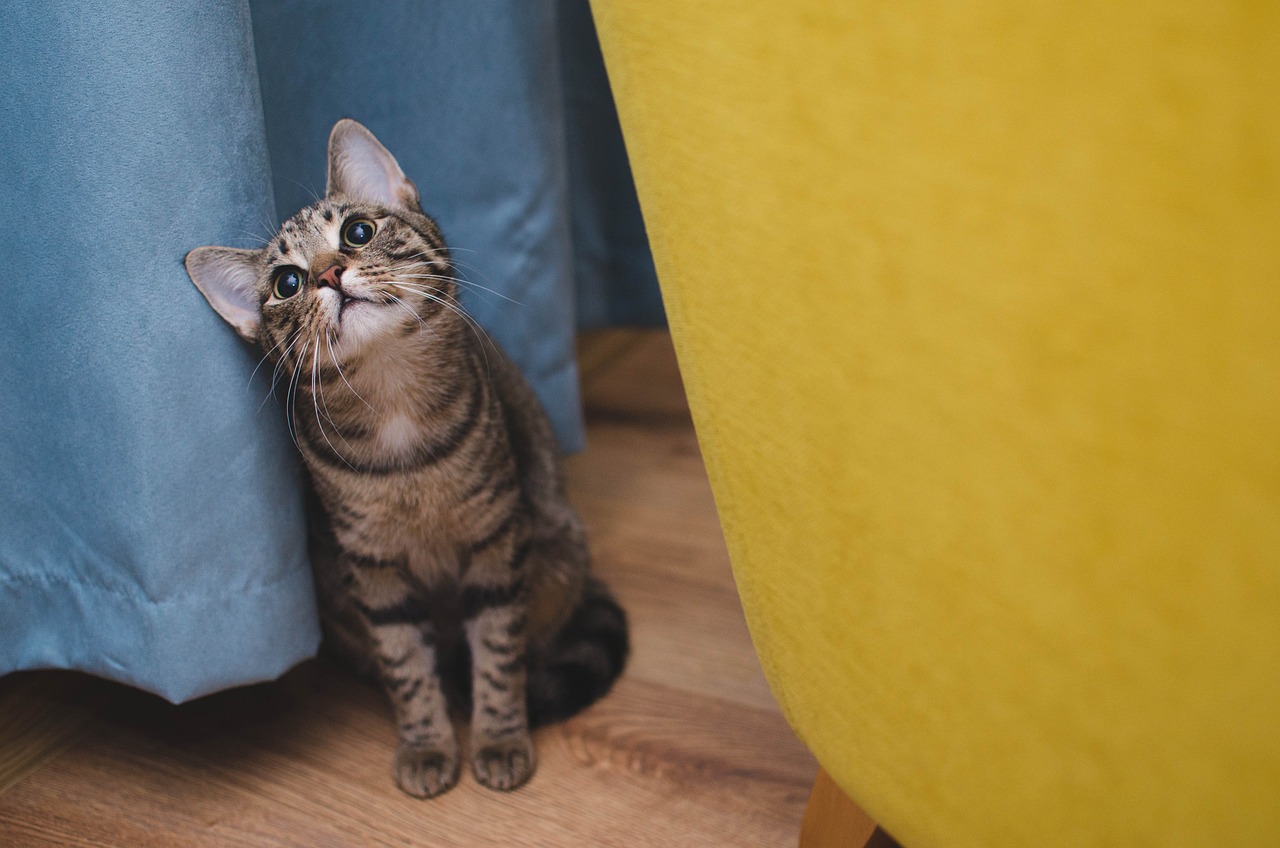
Care Requirements
Taking care of a Chartreux cat is not just about feeding them and providing a cozy spot to nap; it’s a holistic approach that encompasses grooming, diet, and their environment. These majestic felines thrive on regular care, which is essential for their health and happiness. One of the first things to note is that although Chartreux cats have a short, dense coat, they still require regular grooming. This helps to reduce shedding and prevents matting, ensuring that their beautiful fur remains soft and healthy. You might be surprised to find out that a simple weekly brushing can keep their coat in top shape and also strengthen the bond between you and your feline friend.
When it comes to their diet, Chartreux cats are known for their hearty appetites, so providing a balanced diet is crucial. A high-quality, protein-rich cat food is essential to support their active lifestyle and maintain their weight. It's important to monitor their feeding schedule, as these cats can be prone to obesity if they overindulge. Typically, feeding them twice a day is a good practice, but you should always consult with your veterinarian to tailor a plan that meets your cat's specific needs. Here’s a simple breakdown of their dietary considerations:
| Nutrient | Importance |
|---|---|
| Protein | Supports muscle health and energy levels |
| Fats | Provides energy and supports skin and coat health |
| Vitamins & Minerals | Essential for overall health and immune function |
Moreover, creating a stimulating environment is vital for a Chartreux's well-being. These cats are naturally curious and playful, so providing them with toys, scratching posts, and climbing spaces will keep them engaged. Think of their environment as a playground that caters to their natural instincts. A few interactive toys can go a long way in keeping them physically and mentally stimulated.
In addition to physical care, mental health is equally important. Chartreux cats thrive on social interaction, so spending time with them daily is essential. Whether it’s a gentle play session or simply cuddling on the couch, these moments strengthen your bond and contribute to their emotional well-being. So, if you have a busy lifestyle, consider adopting two Chartreux cats to keep each other company while you’re away.
- How often should I groom my Chartreux cat? It’s recommended to groom them at least once a week to keep their coat healthy.
- What type of food is best for a Chartreux? A high-quality, protein-rich diet is ideal for maintaining their health.
- Are Chartreux cats good with children? Yes, they are known for their gentle and patient nature, making them great companions for kids.
- Do Chartreux cats require a lot of exercise? While they are playful, they can entertain themselves, but regular playtime with their owners is beneficial.
Grooming Needs
The grooming needs of a Chartreux are quite manageable, making them an appealing choice for both novice and seasoned cat owners. Despite their short coat, these cats benefit from regular grooming sessions to keep their fur in top condition and to strengthen the bond between pet and owner. A simple grooming routine can significantly enhance their overall well-being.
One of the primary reasons for grooming your Chartreux is to reduce shedding. While they don’t have long, flowing fur, they do shed, especially during seasonal changes. Regular brushing, ideally once a week, can help minimize the amount of hair that ends up on your furniture and clothes. Using a soft-bristle brush or a grooming glove can make the experience enjoyable for both you and your feline friend.
Additionally, grooming is an excellent opportunity to check for any skin issues or parasites, such as fleas or ticks. By incorporating this into your routine, you can catch potential problems early on, ensuring your Chartreux stays healthy and happy. Remember, their coat is not just about looks; it’s also a reflection of their overall health.
You may also want to pay attention to their ears and nails during grooming sessions. Regularly checking their ears for dirt or wax buildup can prevent infections, while trimming their nails every few weeks helps keep them comfortable and prevents damage to your furniture. If you’re unsure about how to trim their nails, consult your veterinarian for guidance or watch a few instructional videos to get the hang of it.
Lastly, don’t forget about dental hygiene! While not directly related to grooming, maintaining your Chartreux’s dental health is crucial. Regularly brushing their teeth or providing dental treats can help prevent dental diseases, which are common in cats. Just like humans, cats need good oral care to maintain their overall health.
In summary, grooming a Chartreux involves a few simple yet effective practices: brushing their coat, checking their ears, trimming their nails, and caring for their teeth. By dedicating a little time each week to these tasks, you can ensure your Chartreux remains not only beautiful but also healthy and happy.
- How often should I groom my Chartreux? It's recommended to groom them at least once a week to keep their coat healthy and to manage shedding.
- Do Chartreux cats require special grooming tools? A soft-bristle brush or grooming glove is ideal for their short coat.
- How can I tell if my Chartreux needs a bath? Generally, cats groom themselves effectively, but if they get into something messy, a gentle bath with cat-specific shampoo may be necessary.
- What should I do if I notice skin issues during grooming? If you notice any redness, irritation, or unusual bumps, consult your veterinarian for advice.
Dietary Considerations
When it comes to the Chartreux, providing a well-balanced diet is not just a matter of choice; it’s a necessity for their overall health and vitality. These cats thrive on a diet that mirrors their natural hunting instincts, which means a mix of high-quality protein sources is essential. Think of it like fueling a high-performance engine; the better the fuel, the better the performance. Chartreux cats typically require a diet rich in animal proteins, such as chicken, turkey, and fish, which help maintain their muscle mass and support their active lifestyle.
In addition to protein, it's crucial to ensure that the diet includes the right balance of fats and carbohydrates. Fats are vital for energy and help keep their coat shiny and healthy. On the other hand, carbohydrates should be included in moderation, as too many can lead to obesity—a common issue in indoor cats. A typical feeding schedule might look something like this:
| Meal Time | Food Type | Suggested Portion |
|---|---|---|
| Morning | Wet food (high protein) | 1/2 to 1 can |
| Evening | Dry food (balanced nutrition) | 1/4 to 1/2 cup |
Hydration is another key factor in a Chartreux's diet. Cats often don’t drink enough water, so incorporating wet food into their meals can help keep them hydrated. Additionally, always ensure fresh water is available at all times. Remember, hydration is as crucial as the food they consume!
Moreover, it's wise to be cautious about treats. While it's tempting to spoil your feline friend with goodies, moderation is key. Too many treats can lead to weight gain and health issues. Opt for healthy treats, such as small pieces of cooked chicken or commercial treats designed for cats, and limit them to no more than 10% of their daily caloric intake.
Lastly, consider consulting your veterinarian for personalized dietary recommendations tailored to your Chartreux's specific needs. Factors such as age, weight, activity level, and any underlying health conditions can significantly influence their dietary requirements. After all, every cat is unique, and what works for one may not work for another!
- What is the best food for a Chartreux? A high-quality, protein-rich diet with minimal fillers is ideal. Look for brands that list meat as the first ingredient.
- How often should I feed my Chartreux? Typically, two meals a day is sufficient, but it can vary based on age and activity level.
- Can I give my Chartreux treats? Yes, but do so in moderation. Healthy treats can be a great way to bond with your cat.
- Should I consider a special diet for my Chartreux? If your cat has specific health concerns, consult your vet for a tailored dietary plan.
Frequently Asked Questions
- What are the key characteristics of the Chartreux breed?
The Chartreux is known for its robust body, short hair, and striking copper or gold eyes. They have a unique coat color and texture that adds to their charm, making them easily recognizable and beloved by many.
- How do Chartreux cats behave around children?
Chartreux cats are typically very patient and playful, making them great companions for children. Their gentle nature allows them to engage in fun activities without getting overly stressed, which is ideal for families.
- Are Chartreux cats independent?
Yes, while they are affectionate and enjoy spending time with their owners, Chartreux cats also appreciate their independence. They can entertain themselves, making them suitable for owners with busy lifestyles.
- What health issues should I be aware of with Chartreux cats?
Chartreux cats are generally healthy, but they can be prone to certain genetic conditions. Regular veterinary check-ups and being aware of common health issues can help owners take proactive measures to ensure their pet's well-being.
- What are the grooming needs for a Chartreux?
Even though they have a short coat, regular grooming is important for Chartreux cats. It helps reduce shedding and matting, and it also strengthens the bond between the pet and the owner.
- What should I feed my Chartreux cat?
A balanced diet is crucial for the health of a Chartreux. Owners should focus on high-quality cat food that meets their nutritional needs, and it's important to establish a regular feeding schedule to maintain their overall well-being.
- Can Chartreux cats get along with other pets?
Absolutely! Chartreux cats are known for their sociable nature and can often coexist peacefully with other pets, including dogs. Their adaptable temperament allows them to integrate smoothly into multi-pet households.







